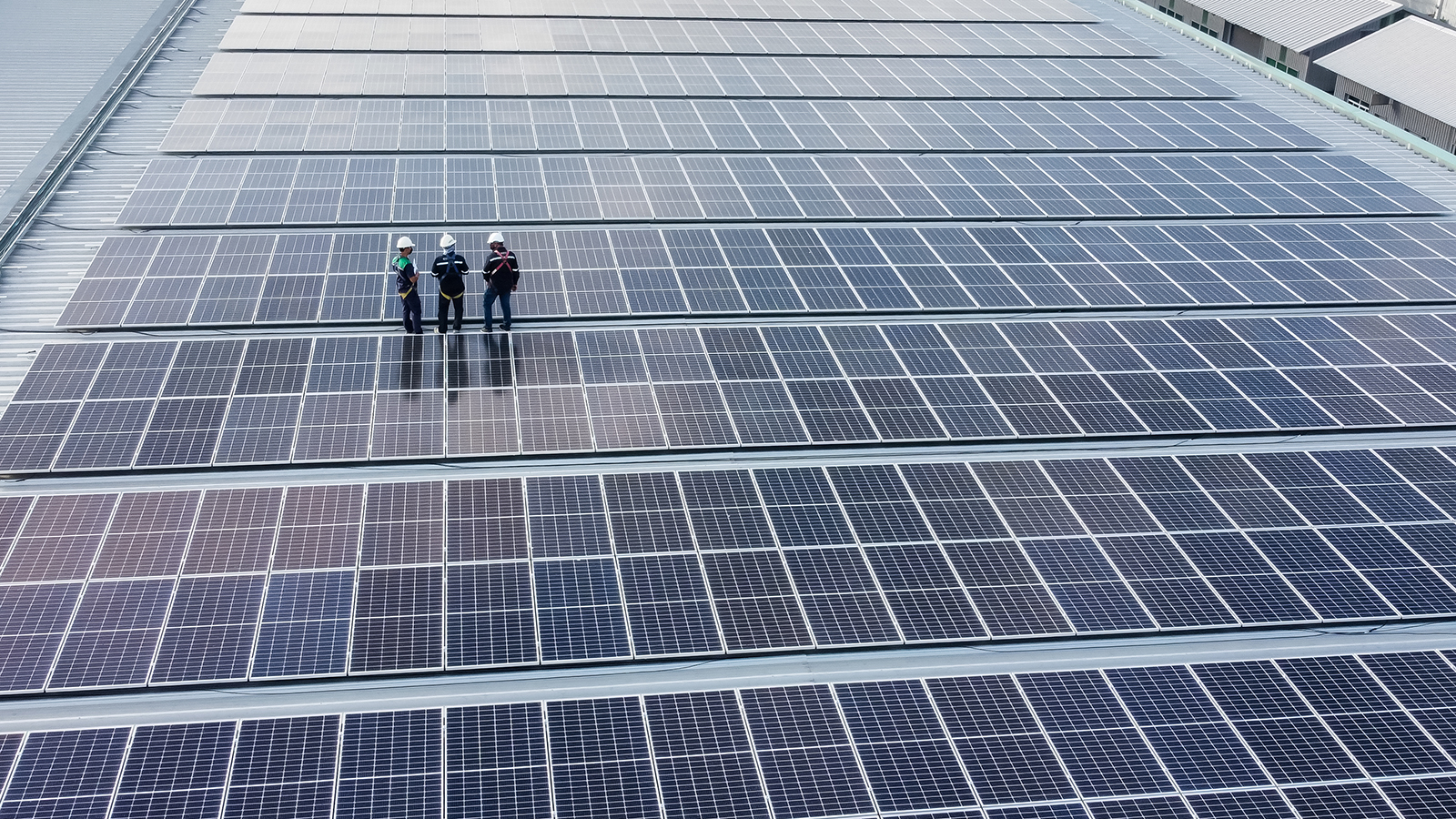
Tell FedEx to go solar on its warehouses
Solar on top of FedEx warehouses is a no-brainer
Take Action
Advocate, Environment North Carolina
Senior Director, Campaign for 100% Renewable Energy, Environment America
When you think about all the places we could and should put solar panels in North Carolina, the big flat roofs of warehouses are one of the most obvious.
In 2021, North Carolina ranked fourth on a list of states with the most energy generated from solar, according to the U.S. Energy Information Administration. Over the past decade, solar has gotten cheaper and more efficient. For these reasons and more, solar is likely to play a big role in reducing our dependence on dirty energy sources in the future.
As companies set goals to reduce their contribution to climate change, solar is a natural choice to aid their transition. FedEx, one of the nation’s largest and most notable warehouse and shipping companies in the world, has set a goal of carbon neutrality by 2040. But, the company has yet to publicly announce a rooftop solar goal. With 10 large ground terminal facilities in North Carolina, the lower costs of going solar coupled with large open rooftops creates a golden opportunity for FedEx.
With ongoing projects in offshore wind, more buildings going solar, and new electric vehicle charging stations popping up around the state, the future of clean energy in North Carolina is bright. In the third quarter of 2023, North Carolina was listed 8th in a list of US states taking the most actions towards grid modernization. North Carolina has also invested in production of clean energy technology, from EV battery production to solar panel installation.
FedEx has the opportunity to play a leadership role in North Carolina’s clean energy transition, lighting the way for others to follow. According to the report Solar on Warehouses, North Carolina has 14,733 medium and large warehouses with a combined 384 million square feet of rooftop space. If we used all of that space for solar, it could generate 7,033 GWh of electricity per year, or enough to power 551,000 homes.
As a market leader in the logistics industry with 10 facilities in North Carolina providing ample rooftop space, Fed Ex not using that space for clean energy generation is a huge missed opportunity. When FedEx puts solar panels on its warehouse roofs, the company will produce pollution-free energy and help drive down costs for others interested in solar.
From hurricanes that pound our coast to winter storms that leave thousands without power, North Carolina’s electric infrastructure is not invincible. As weather becomes increasingly intense and unpredictable, our state needs to look for opportunities to improve resiliency. Rooftop solar is one of those solutions. The more clean energy sources we have spread throughout the state, the less reliant we become on big centralized power plants and long-distance transmission lines that can be vulnerable to outages.
The energy collected by solar panels which is not used right away can also be stored in batteries to help with high demand during peak hours, improving resiliency on a daily (or, nightly) basis.
In 2020, North Carolina experienced many days of elevated air pollution. The North Carolina Department of Environmental Quality (NCDEQ) lists ground level ozone and particulate matter as the greatest air pollutants of concern in our state, both of which result from burning dirty energy sources to generate electricity and power our vehicles.
Numerous health risks result from air pollution, including cancer and damage to the immune system.
That being said, our state currently has the cleanest air we have seen in decades, according to a report by the NCDEQ. No amount of air pollution is healthy, so we can continue this trend towards cleaner air by urging companies like FedEx to generate clean electricity by harnessing pollution-free solar energy on their rooftops.
FedEx owns and operates over 5,000 facilities with 680 ground facilities nationwide. These ground facilities have a combined rooftop area of over 112 million square feet which could be used to generate clean energy. There’s enough rooftop space on U.S. FedEx facilities to power almost 20 million homes.
FedEx going solar would not only be great for North Carolina, but it could help the entire country get more of its energy from pollution-free sources like the sun and improve resiliency nationwide. The company could also start a trend among other warehouse and shipping businesses which results in more warehouses making better use of all of that rooftop space.
As FedEx works to meet its goal of carbon neutrality by 2040, solar panel installations on its warehouse roofs are a no-brainer to help them get there.
That’s why we are calling on FedEx to publicly commit to a goal of installing solar on all viable warehouse roofs and parking lots by 2035, and require or incentivize companies they do business with to make rooftop solar commitments as well.
FedEx owns and operates lots of warehouses, but the company has not publicly announced a goal or plan to install solar on its rooftops.
Take Action
Emily advocates for cleaner air, water, clean energy and protecting wildlife and wild places in North Carolina. Emily lives in Cary, North Carolina, where she enjoys trying new recipes and kayaking.
Johanna directs strategy and staff for Environment America's energy campaigns at the local, state and national level. In her prior positions, she led the campaign to ban smoking in all Maryland workplaces, helped stop the construction of a new nuclear reactor on the shores of the Chesapeake Bay and helped build the support necessary to pass the EmPOWER Maryland Act, which set a goal of reducing the state’s per capita electricity use by 15 percent. She also currently serves on the board of Community Action Works. Johanna lives in Amherst, Massachusetts, with her family, where she enjoys growing dahlias, biking and the occasional game of goaltimate.
